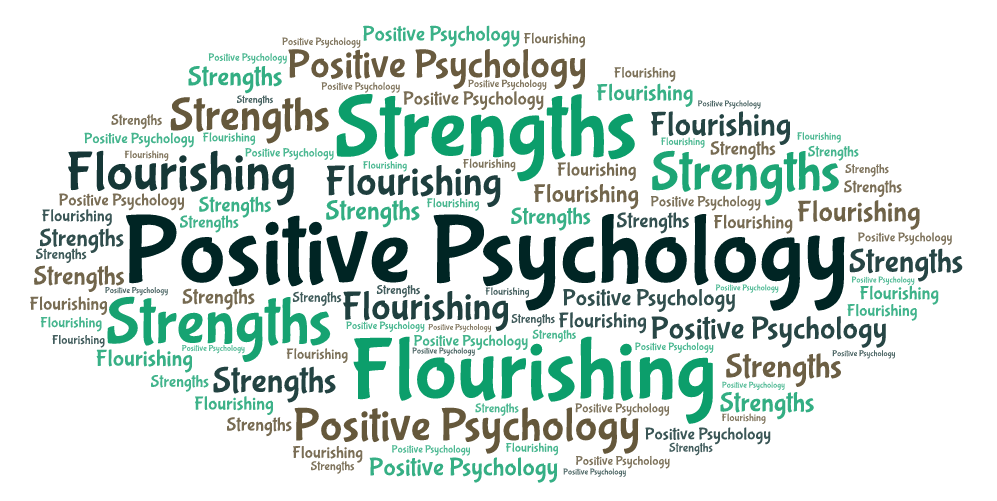Have you ever wondered what makes some people so happy and others so unhappy? Or why some people can achieve their goals while others struggle? The answer lies in positive psychology. Positive psychology is the scientific study of happiness and well-being. It is a relatively new field, but it has already yielded a great deal of information about what makes us happy and how we can achieve greater levels of well-being. In this blog post, we will discuss the basics of positive psychology and how you can apply its principles to your own life!
Contents
What Is Positive Psychology?

Positive psychology is the scientific study of happiness and well-being. Although it is a relatively new field, it has already yielded a great deal of information about what makes us happy and how we can achieve greater levels of well-being. It focuses on the positive aspects of human life, such as happiness, strength, and resilience. It also explores how we can use these positive traits to improve our lives and overcome challenges. Positive psychology is not just about feeling good; it is also about living a good life. It was founded by Martin Seligman, who is considered to be the father of positive psychology.
Goals Of Positive Psychology
The goals of positive psychology are to:
- Increase happiness and well-being
- Build strengths and resilience
- Enhance the quality of life
- Nurture healthy and fulfilling relationships
- Cultivate a sense of goal-setting and achievement
- Develop feelings of such as optimism, altruism, and gratitude
- Improve problem-solving and decision-making skills
Levels Of Positive Psychology
There are three levels of positive psychology:
- The first level is the study of positive emotions and states, such as happiness, joy, love, and satisfaction. This level is subjective as it focuses on self well-being.
- The second level is the study of positive individual traits, such as strengths, resilience, and optimism. It also constitutes the qualities and values which are needed to be a ‘good’ person.
- The third level is the study of positive institutions, which are organizations or groups that promote positive change in society. It encompasses social responsibility and attitudes that can maximize human potential in a group setting.
Techniques Used In Positive Psychology

Positive psychology uses a variety of techniques to achieve its goals. These techniques include:
- Happiness interventions: These are activities that you can do to increase your happiness and well-being. Examples of happiness interventions include gratitude exercises, savoring pleasant experiences, as well as practicing mindfulness.
- Character strengths: They are the positive traits that you possess. Some examples of character strengths are kindness, creativity, and determination. Positive psychologists additionally believe that we can use our character strengths to improve our lives and achieve our goals.
- Resilience training: This helps us build the skills we need to cope with stress and adversity. It can involve learning how to set realistic goals, manage our emotions, and stay positive in the face of difficulties and obstacles.
- Finding purpose: Identifying purpose helps in withstanding hardships and overcoming daily life obstacles. This helps in fighting symptoms of disorders like depression and anxiety.
PERMA Model
One of the most popular models in positive psychology is the PERMA model. It stands for Positive Emotions, Engagement, Relationships, Meaning, and Accomplishments. These are five key areas that contribute to our happiness and well-being.
Positive Emotions: Positive emotions are essential for happiness. They include joy, love, interest, contentment, pride, and also enthusiasm.
Engagement: Engagement refers to being fully absorbed in an activity. When we are engaged in something we enjoy, time seems to fly by. We may lose track of time completely and feel “in the zone.”
Relationships: Good relationships are essential for happiness. These can be relationships with family, friends, co-workers, or anyone else with whom we interact regularly.
Meaning: Meaning refers to having a sense of purpose in life. This can come from our work, our hobbies, or our relationships. It is what gives our lives significance and makes us feel like we are part of something larger than ourselves.
Accomplishments: Accomplishments moreover give us a sense of satisfaction and pride. They can be big or small, but they all contribute to our overall well-being.
Applying Positive Psychology In Life
Now that you know a little bit about positive psychology, how can you apply its principles to your own life? There are many ways to do this, but here are a few suggestions:
- Identify your strengths and weaknesses. This will help you focus on developing your strengths and also work to improve your weaknesses.
- Set goals. Having specific goals to work towards will give you a sense of purpose and further keep you motivated.
- Find things to enjoy. Make time for activities that make you happy and fulfilled. This could include hobbies such as sports, cooking, painting, or spending time with loved ones.
- Build strong relationships. Nurture the relationships in your life that are important to you. Spend time with loved ones, and further try to reach out to old friends
- Grow intrinsic motivation and self-reliance.
- Practice mindfulness. Be present and acknowledge everything around you, no matter how small.
- Indulge in practicing kindness and compassion, for yourself and also for others.
Benefits Of Positive Psychology
 There are many benefits of positive psychology. Some of the most notable benefits include:
There are many benefits of positive psychology. Some of the most notable benefits include:
- Improved mental and physical health
- Greater life satisfaction and happiness
- Higher levels of self-esteem and self-efficacy
- Stronger relationships
- Increased resilience in the face of stress and adversity
- Greater success in achieving personal goals
Criticisms Of Positive Psychology
Although positive psychology has many benefits, it is not without its criticisms. Some of the most common criticisms include instances such as:
- Focuses too much on happiness and not enough on other emotions.
- Ignores the negative aspects of life.
- It is too individualistic and does not take into account social factors
- It is not appropriate for those in crisis
Conclusion
Hence, positive psychology is the scientific study of happiness and well-being. It is a relatively new field, but it has already yielded a great deal of information about what makes us happy and how we can achieve greater levels of well-being. In this blog post, we have discussed the basics of positive psychology and how you can apply its principles to your own life. We hope that this information will moreover help you on your journey to a happier and more fulfilling life!
A Word From Therapy Mantra
Your mental health — Your psychological, emotional, and social well-being — has an impact on every aspect of your life. Positive mental health essentially allows you to effectively deal with life’s everyday challenges.
At TherapyMantra, we have a team of therapists who provide affordable online therapy to assist you with issues such as depression, anxiety, stress, workplace Issues, addiction, relationship, OCD, LGBTQ, and PTSD. You can book a free therapy or download our free Android or iOS app.


